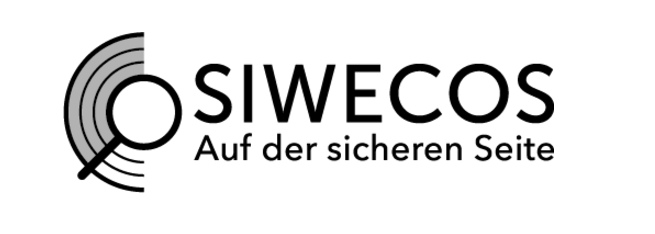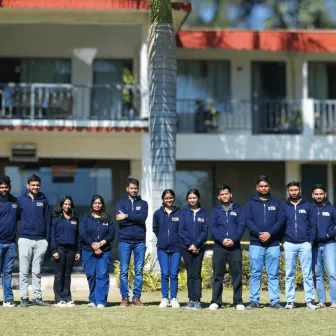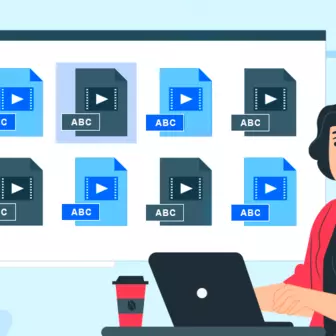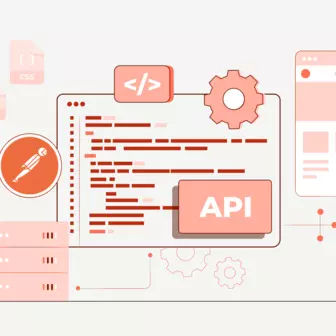Website owners are often trapped inside an imaginary bubble where they make conclusions like “There are more valuable sites in the web world, why would mine be targeted by the hackers?”
And Alas the bubble is busted when they observe that hackers have attacked their site because let's face it- they would never discriminate between any choice they are getting. They want a website to attack, and they have it.
For opensource CMS like Drupal, WordPress, and Joomla, the scenario is the same. As popular as these platforms are, they are the targets of all sorts of attacks. Cybercriminals discover the security loopholes and hack your website in no time.

Which leaves us with the assumption that these platforms ( which together conquer 68.5% of the CMS market) must be providing some form of protection.
And yes, the assumptions are true.
Birth of SIWECOS
SIWECOS project or the “Secure Websites and Content Management Systems” project is the security project which is funded by the German ministry of Economics that desires to improve the security of the CMS based websites ( which of course includes Drupal, WordPress, Joomla, and many others)

The project was designed to help small and medium-sized enterprises (SMEs) identify and correct the security loopholes that they witness on their websites. It focused on concrete recommendations of action in the event of damage and also taking care of sensitizing SMEs to cybersecurity.
The utilization of the vulnerability scanner in the project helped SMEs to regularly check the server system and made them acquaint well with the vulnerability that might occur in a web application. Not only this but a service for web hosts were also presented which actively communicated with acute security vulnerabilities and offered filtering capabilities to prevent cyber attacks.
The end users were also protected with potential data losses as well as financial losses.
Initiative-S
The aim of SIWECOS in longer run was to increase web security and raise a proper awareness of the relevance of IT security for SMEs. Thus, Initiative-S came out as a ray of hope for the support of the small and medium-sized enterprise. It was a government-funded project which was built by the initiative, the association of the German internet industry echo.
The association built a web interface called “clamavi”. This was done for the users to grant them with the ability to enter their domain and conduct a malware scan of the source code once per day. Thus the website check of Initiative-S was integrated into the new project of SIWECOS. The proven Initiative-S technology now supplements the portfolio of the new SIWECOS service with a check for possible malware infestation.

Importance of the Project
As mentioned, the whole project revolved around the security of the CMS platform, Since the time it was started, the project took 2 years to complete. The mission was to introduce the end users with:
- Importance of security in cooperation and provided the end users with individual notifications and recommendation on security issue of a website.
- Increase in web security for a longer period and to identify and address security vulnerabilities of their website.
- The project helped ordinary users patch more quickly. Patching is the application of updates (patches) to existing code that either increase the functionality or correct patch vulnerabilities.
- It also scanned registered user websites. If any security vulnerabilities were found then the person in the field of IT security was contacted directly.
What does SIWECOS have in General?
SIWECOS, in general, had three things
Awareness Building
It is the detailed version of the introduction and the process on how to subscribe it. They reached out to the end users that not only included the site owners but also the ones that have to maintain it later. The major purpose of the awareness campaign was to influence the behavior of the users since improvements cannot take place without changes in their attitudes and perceptions.
Skinning Service
The whole scanning system in Skinning Service is based on an API which is an open source that is embedded inside. It gave the end users with score count between zero and hundred to give them an idea on how secure or insecure the setup is.
Behind the score, there were five scanners which were used to check malware in the HTML code. Scanners like:
- HTTP Header Scanner
Ensures that your server conveys the browser to enable security features.
- Info leak Scanner
Verifies if the site exposes security-relevant information.
- TLS scanner
Checks the HTTPs encryption for known issues, outdated certificates, chain of trust etc
- Initiative S Scanner
This scanner checks the website for viruses or looks for third-party content such as phishing.
- DOMXSS Scanner
This scanner verifies that the website is protected against DOMXSS attacks.
Web Host
The companies that power the service behind the website are likely to be called as web hosts. Web hosts team generally should have all the basic technical knowledge, security awareness and should have an active communication of filter rules to defend against attacks.
The need for Filter rules - to limit the circle of recipients.
Firewall rules made it easy for experienced attackers to build and exploit the website as they want. Thus, by filtering incoming and outgoing network traffic (based on the set of user-defined rules) there was a reduction in unwanted network communication.
Another reason to use web host was server-side protection. The server- side was protected against all these attacks on the web pages that were installed in the web hoster. This was done to protect web page operators.
Partner in the Project
SIWECOS project included four partners mainly that contributed highly to the project. The four partners were:
Eco
Eco or electronic commerce is the largest association of the internet industry in Europe. The association sees itself as the representation of the interests of the internet economy and has set itself with the goal of promoting technologies, shaping framework conditions and representing the interests of its members. The Eco group includes all the internet industry and promotes current and future internet topics.
The awareness building section was mainly done by eco association because of the fact that they were really good at marketing and networking.

RUB
The Ruhr-University Bochum, located on the southern hills of central Ruhr area Bochum, is one of the partners in the whole project. It has one of the greatest and most proven track records in the general IT security industry. They were included in the project with the agenda of building a scanning engine that gave the business owners feedback about potential security problems on their site such as SSL misconfiguration or vulnerability to cross-site scripting attacks.

HACKMANIT
Hackmanit GmbH was founded by IT security experts that were from Ruhr University Bochum. They have an international publication of XML security, SSL/TLS, single sign-on, cross-site scripting, and UI redressing. The priorities of the company were designed by high-quality penetration testing, hands-on training, and tailor-made expertise. The organization has in-depth knowledge about the security of web application, web services, and applied cryptography. The team offers a white box and black box tests which protects the application from the effects of all sorts of hackers attack.

CMS Graden
The CMS garden is the umbrella organization of the most relevant and active open source content management system. In other words, the security team started with CMS planning in 2013 by making a shoutout to the CMS community to join the team. Surprisingly, there were CMS platforms which were interested. Thus, by 2013, there were 12 open source CMS systems in one place.
CMS garden also contributes to a series of plugins for different open source CMSes that provides feedbacks from within the CMS management interface so that the site owners have the ability to act immediately when they encounter with any security vulnerability.

In the End
Website attacks and cyber attacks are rapidly growing. These attacks cost the organizations millions of dollars, subject them to the lawsuit and ruin their lives.
SIWECOS is like a shield for all the websites and the CMS platforms, it protects them against cyber attacks and hackers of all sort, helping in keeping up with the security and protection against vulnerabilities.
We know how important web security is to protect your online identity and personal information. If you’re concerned about your web security for your business, or other network issues, our services can help. Contact us on [email protected] the professionals would guide you with all your queries and questions and help you leverage security for your website.
Subscribe
Related Blogs
Trek n Tech Annual Retreat 2025: A 7-Day Workcation of OSL

OSL family came together for the Trek n Tech Annual Retreat 2025, a 7-day workcation set amidst the serene beauty of…
Exploring Drupal's Single Directory Components: A Game-Changer for Developers

Web development thrives on efficiency and organisation, and Drupal, our favourite CMS, is here to amp that up with its…
7 Quick Steps to Create API Documentation Using Postman

If you work with API , you are likely already familiar with Postman, the beloved REST Client trusted by countless…




